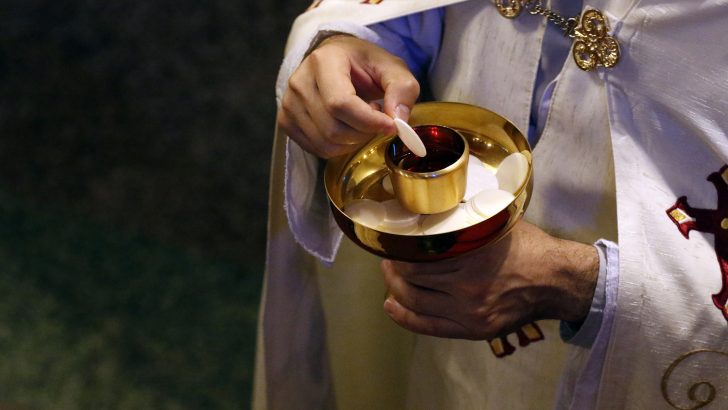The sacraments cannot be treated as mere rituals that can be approached regardless of one’s beliefs or morality, writes Fr John McKeever
Many have described the landslide in the abortion referendum result as ‘a wake-up call for ‘the Church’, presumably meaning ‘the hierarchy’. However, the Church in reality is all the baptised, including those who rarely if ever practise their Faith.
While bishops and those charged with catechesis will have to re-examine how the teachings of the Church are communicated more clearly and successfully, all those who regard themselves as Catholics – laypeople, religious and clergy – will also have to reflect on what it means to be part of the Church, especially in the context of participation in its sacramental life.
The sacraments are our richest treasure. The Catechism of the Catholic Church calls them “the masterworks of God” in which Christ himself acts powerfully to communicate his grace to souls.
To benefit from them, however, we must celebrate them worthily and with Faith. Bishop Kevin Doran expressed this mildly but clearly when he invited those who voted ‘Yes’ to come to Confession, as did Fr Damien Quigley in Newry when he sought to engage pastorally with a couple preparing for the sacrament of marriage.
The visceral reaction in both cases shows the need to pause and reflect on what it means to receive a sacrament.
The Catholic Church is first and foremost a community of Faith. It received the gift of this Faith from Christ himself and must preserve it intact. To receive a sacrament fruitfully, especially Holy Communion, one must also share in this Faith.
Our current situation is a wake-up call for many people to learn (and priests to teach) that the sacraments cannot be treated as mere rituals that can be approached regardless of one’s beliefs or morality.
While the Church teaches many matters of Faith and morals, there’s a small number of core teachings which one must accept in order to be a full member of this faith community. To obstinately deny any of them is heresy.
These teachings, founded on the Word of God and taught by the Church to be divinely revealed, are contained in the Church’s official ‘Profession of Faith’. Prior to his election as Benedict XVI, Cardinal Joseph Ratzinger stated that among those teachings which must be believed and held by all the faithful is “the doctrine of the grave immorality of direct and voluntary killing of an innocent human being.” To vote in favour of abortion is thus clearly incompatible with the Catholic faith.
Reconciliation
That is why those who voted ‘Yes’ need to be reconciled with God and the Church through Confession before receiving Holy Communion (Canon 916).
Moreover, those who publicly and obstinately promote abortion, whether by writing, speech or posting on social media, have possibly incurred the penalty of automatic excommunication (Canon 1364) if they acted freely and knew the gravity of the offence and the Church’s penalty for heresy (Canons 1321-1324).
An excommunicated person cannot celebrate or receive the sacraments, nor can they hold any office or ministry within the Church (Canon 1331).
If someone publicly advocated or promoted abortion, the only way a priest could determine whether they were excommunicated or not would be to meet them and discuss their thinking and motivation on the matter.
His aim in such a meeting would be to help them recognise the truth of the Lord’s teaching on the sanctity of human life and be reconciled with God and the Church so that they could indeed continue to receive the sacraments. After the example of Christ the Good Shepherd, his aim would always be to seek out and save the lost, not to exclude them.
Regrettably, however, should the person persist in rejecting God’s word in this matter, simple honesty would demand that they not participate in the sacraments until such time, with the help of prayer and God’s grace, they return to the fulness of the Faith.
The Church more than ever needs intentional disciples. Without the intentionality, one inevitably loses the disciple. By renewing the Church’s ancient and constant discipline regarding access to the sacraments may we stir up again that sense of intentionality so that this time of crisis can become a time of genuine renewal.
Fr John McKeever is assistant Chancellor of the Archdiocese of Armagh.



